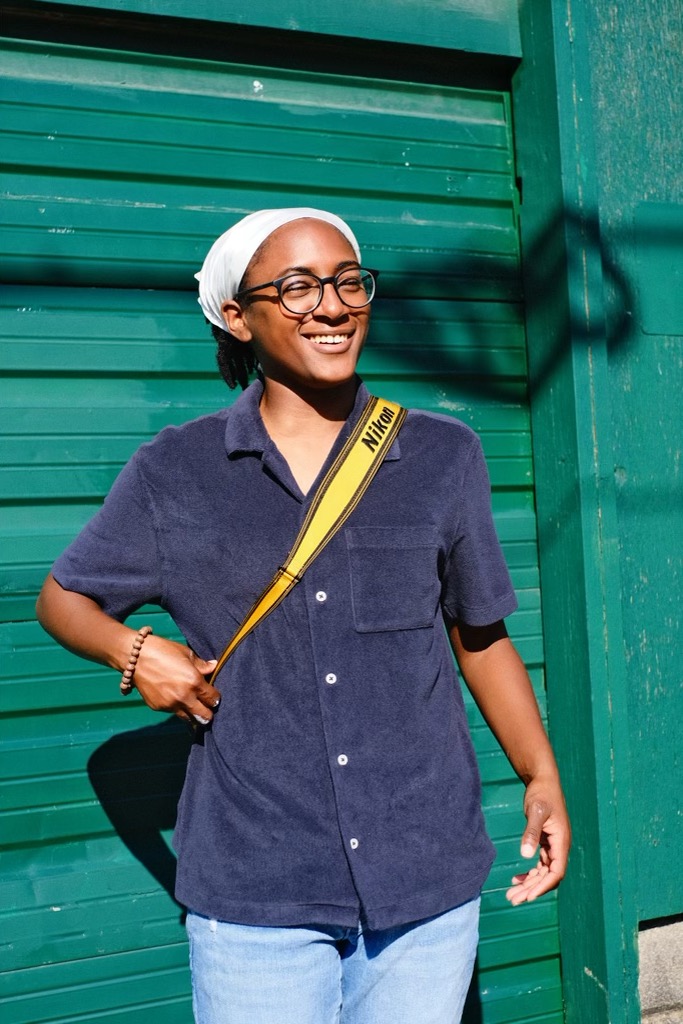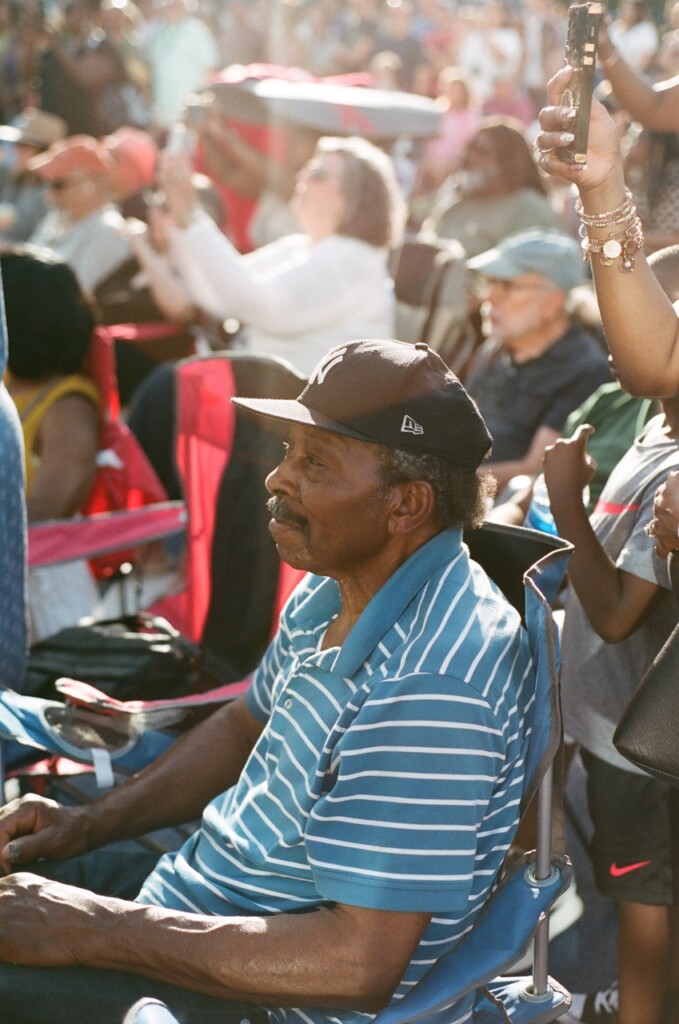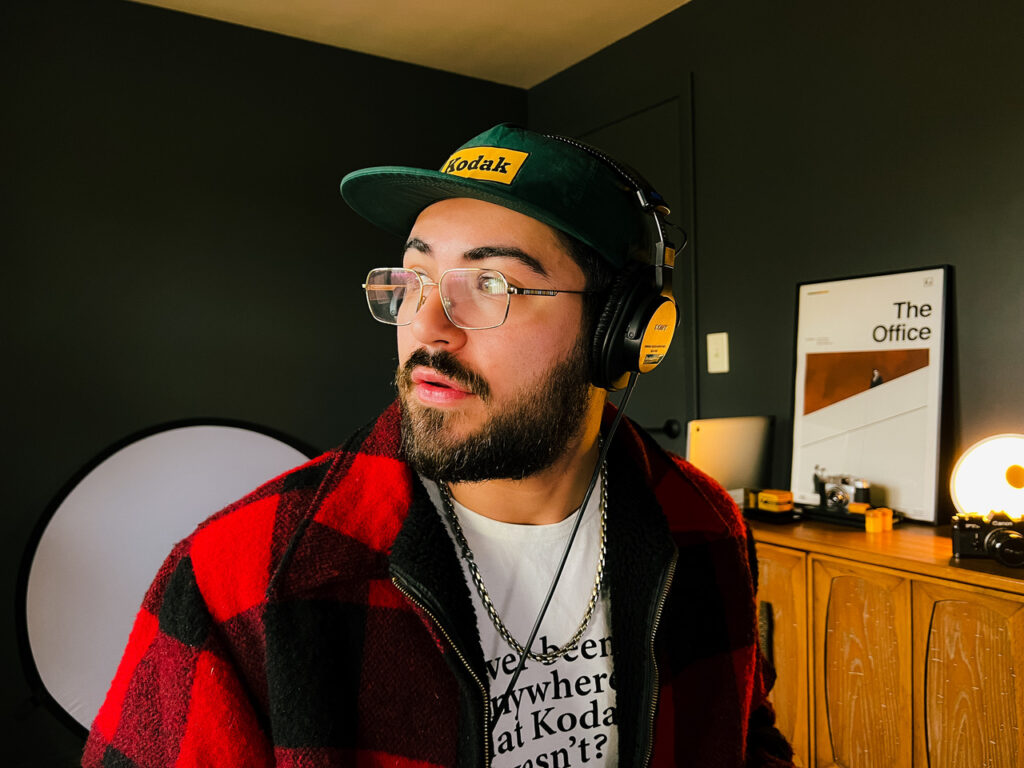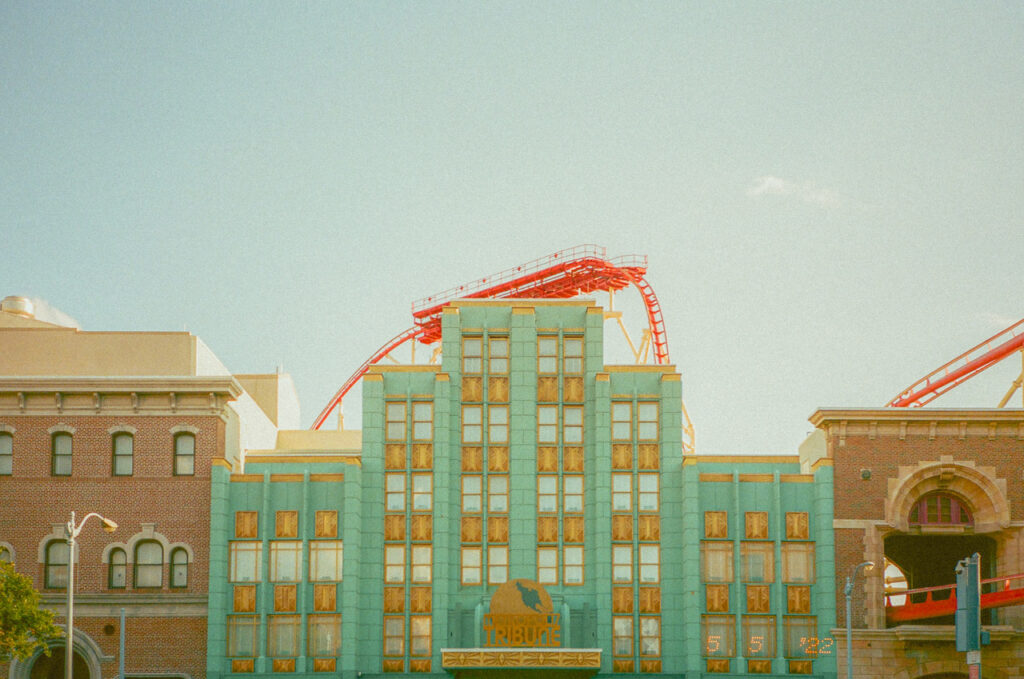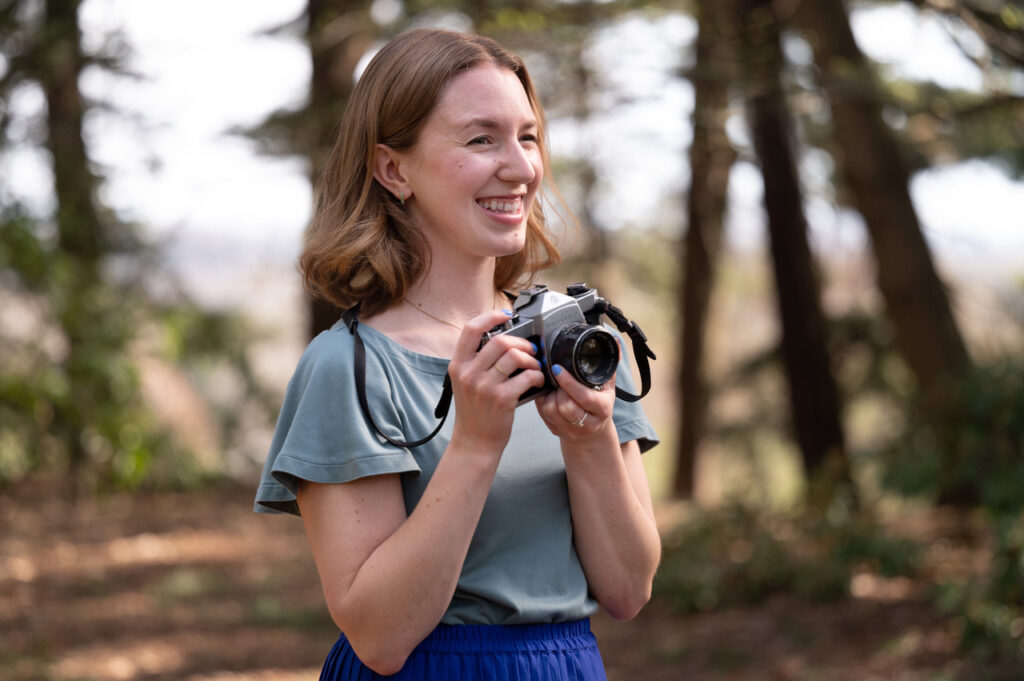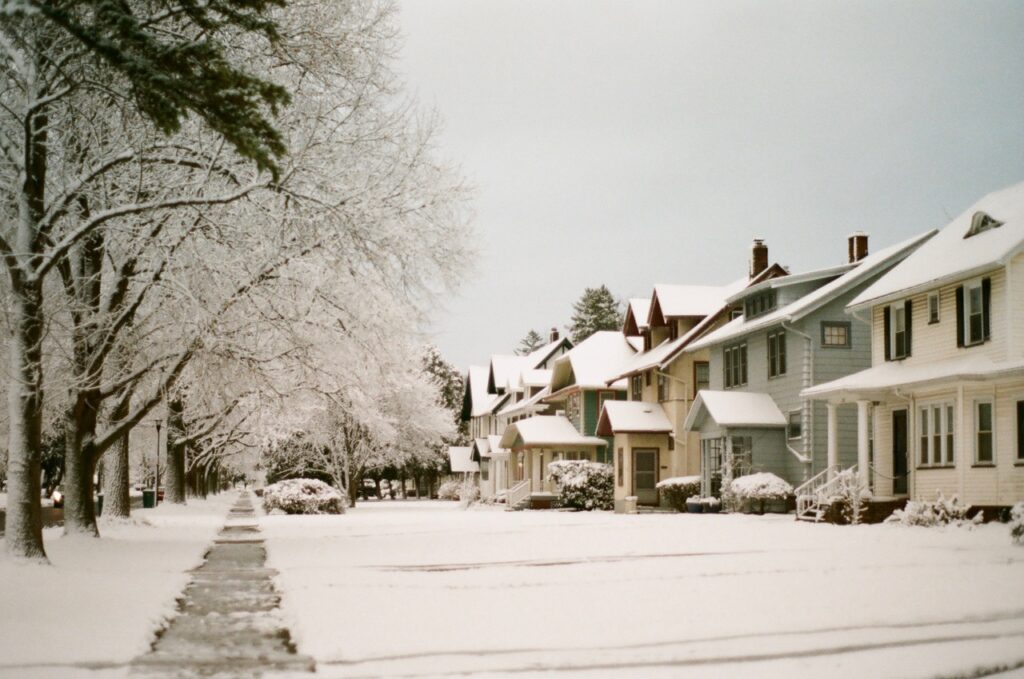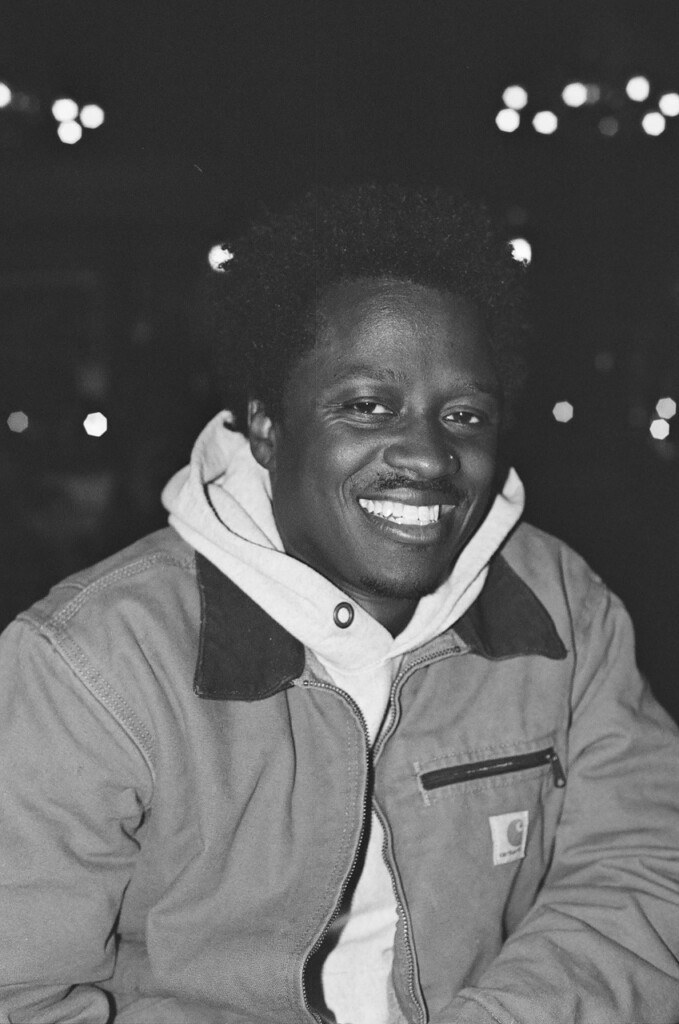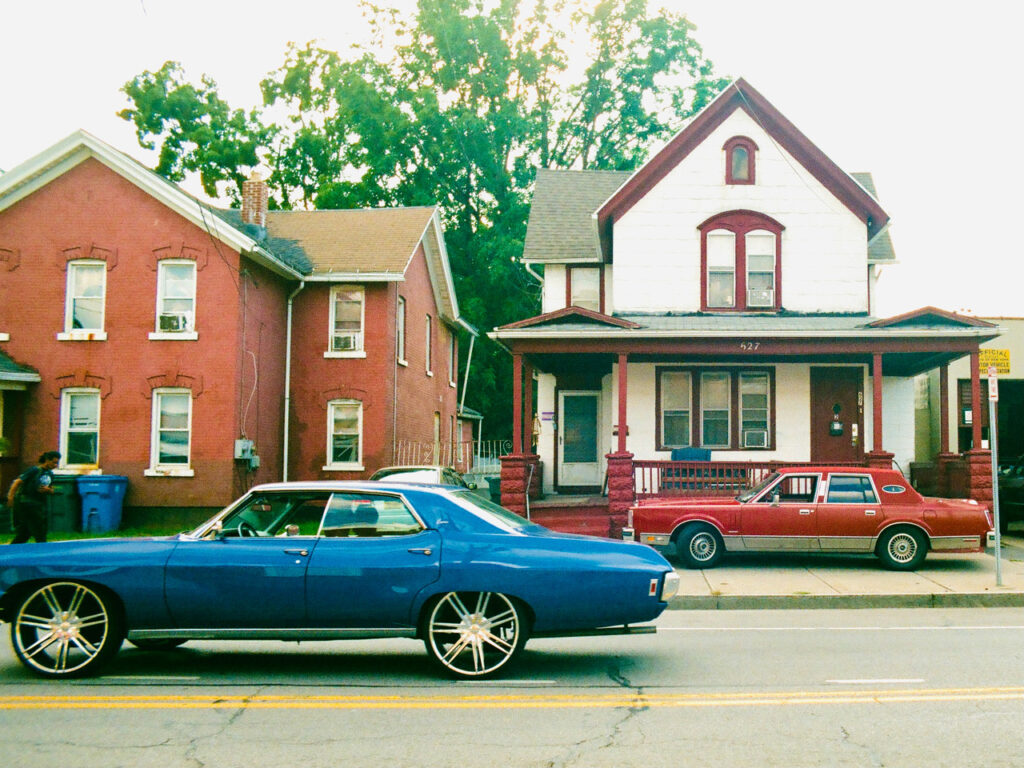In a Q&A session after being featured in the Behind the Glass Gallery, four film photographers—Indy Maring, Roberto Felipe, Beth Larter, and Rudy Fabre—share their reflections on analog photography. Their experience in the gallery was a first for them, sharing the moment with friends, family, and newfound acquaintances. While this work isn’t their full-time commitment, Maring, Felipe, Larter, and Fabre are extremely talented and find solace with a camera in hand and one of their favorite film stocks loaded, ready to capture Rochester and beyond.
Indy Maring,
Director of youth program
Camera of choice: Nikon N70
Favorite stock: Kodak Portra 400, Cinestill800T
What do you like to capture on film?
I love to capture people. I find the most joy and satisfaction in a portrait of someone. I prefer portraiture because it allows me to connect with the person behind my lens.
Do you remember the feeling from the first roll after it was processed?
I bought three rolls of Portra 400 before a weekend trip to New York City and snapped away the entire time, not too concerned with how they would come out. I remember being shocked, because I liked most of them, and I was capturing the beauty in what I was seeing around me.
What have you learned from shooting film?
I’ve learned to trust my instincts. Too often with digital photography when capturing something I take multiple photos, check my work, and then take some more. Film has forced me to trust my gut and trust my eye. Every photo won’t be perfect or how I expected, and that’s okay.
Roberto Felipe,Video editor/producerCamera of choice: Currently testing out the Canon T70Favorite film stock: CineStill 400D, Kodak Tri-X 400
Why analog and film photography?
Being involved with video and even digital photography for work is a blessing and I am grateful for the privilege to have that be what I call my job. It is what I worked so hard for early on in my journey when I first picked up a camera for myself. But that’s just it, the harsh reality is when something you love also becomes work it can take a toll on your origins for that passion. After a big creative stump, film photography brought me back to why I love what I do. It let me rediscover that process of enjoying my time behind the lens, getting lost in it, and having fun. Tangible art has a special quality and human connection. Something I am lucky to have been born in the middle of. I remember when smartphones weren’t a thing and when photography wasn’t as accessible. Film is a reminder that things that take time are still worth yours.
Advice to film photographers or photographers in general?
Never forget why you picked up the camera in the first place and how it made you feel to make you eager to do it again and again and again. Have fun. Don’t overthink it. Not everyone has to be a professional. Just remember your grandparents were once doing this to take random vacation photos you probably have looked back at, at some point, with family. To experienced film photographers, be mindful. You once were a beginner; you once had the simplest questions you were too afraid to ask. The more experienced you are doesn’t make your opinion any more important than anyone else. Some of the things we say can discourage and scare those on the fence of trying film out in the first place. We should lend advice and critique when it’s actually sought after as well. It’s important we do our best to encourage people from all levels of experience and interest to dip their toes into film.
Beth Larter,Elementary school librarianCamera of choice: Pentax SP1000Favorite stock: Kodak ColorPlus200
As you found your way back to analog photography in 2022, how did you feel when you got that first roll of film back from being processed?
My first roll last summer was a huge disappointment. I shot the whole roll at Highland Park and sent it to be processed and scanned, waited over a week for the results, and then I got an email that they were ready, and there was barely anything that I could makeout because I had so significantly underexposed the pictures. The second roll that I got back, with pictures from my neighborhood, was, I think, even sweeter because of that initial failure. I loved the way the pictures looked, but it was also a very tangible proof that I had learned something, and I had improved.
So, what would you say you have learned from film?
I’ve learned a lot about the process of learning. As a teacher, I try to guide my students through that process, but as an adult, I rarely find myself doing anything that is completely new. Learning to shoot film on a manual camera has been very humbling because I have made a lot of mistakes, but it’s given me the opportunity to research and ask for help and fail and try again. That has been very healthy for me as a person and I think has made me stronger as an educator. Embracing the surprise of what you’re going to see on the other side of development is part of what makes film so fun and sometimes frustrating. Film photography has made me slow down and appreciate the physical world in ways I think I had forgotten how to. Even the few extra seconds it takes to manually focus are seconds I might not have taken to really look at anything. I’ve noticed, even when I don’t have my camera with me, since making film photography a regular part of my life, I am more likely to just stop and appreciate something that catches my attention.
Rudy Fabre,building mechanicCamera of choice: Nikon FE2, Pentax 645Favorite stock: Kodak Gold 200
Why film?
The feeling I get when I take and look at a film picture, there’s nothing like it. From the feeling of winding the film and focusing on the subject to the texture and the authenticity you get from a photo taken on film, it can’t be duplicated. Faces, places, and things really. Whatever catches my eye whenever I have my camera in hand makes everything feel timeless.
Has film photography changed how you see something before capturing it?
More particular on what I want to capture since I have a limited number of photos, so the scene really has to stand out. I might focus on how the light is hitting something, maybe focus on something I don’t normally see or overlook on a daily basis or something that just gives me a certain feeling.
Advice to photographers in general?
Don’t be afraid to reach out to ask questions and/or collaborate with one another. We could all learn something from one another.
Views: 1



